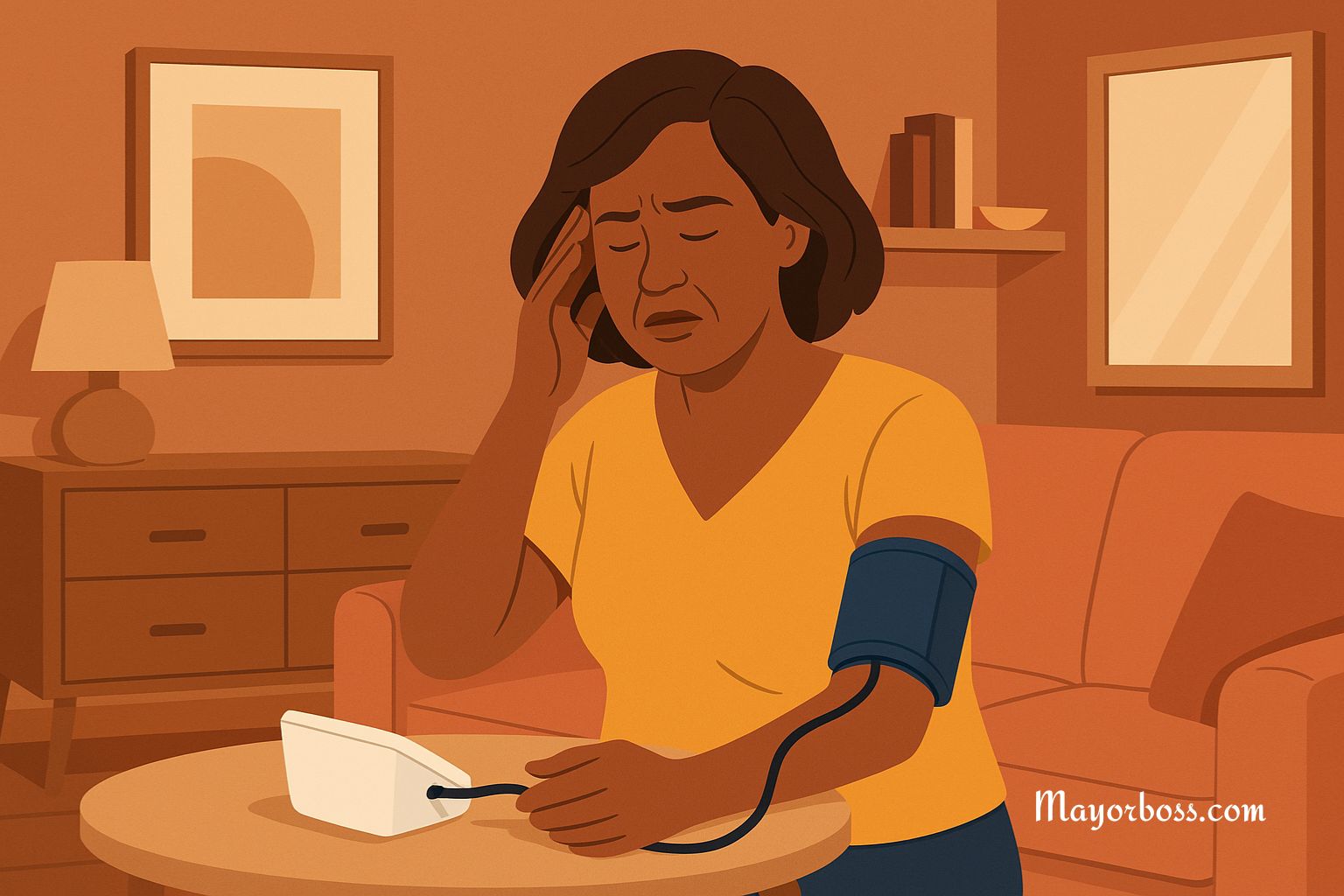The Overlooked Signs of High Blood Pressure
High blood pressure, also called hypertension, is often called a “silent killer.” That’s because it usually has no obvious symptoms until it has already caused serious damage to your body. Many people live with high blood pressure for years without knowing it.
That’s because high blood pressure doesn’t usually cause pain. It doesn’t make you cough or give you a fever. Because of that, many people don’t think anything is wrong. But in some cases, your body may give you small signs—subtle warnings that should not be ignored. Let’s look at the less obvious signs.

What Is High Blood Pressure?
Blood pressure is the force (pressure) of blood pushing against the walls of your arteries. When it stays too high for too long, it puts extra strain on your heart and blood vessels. Over time, this increases the chance of heart attack, stroke, kidney damage, and other serious health problems.1
A normal blood pressure reading is usually around 120/80 mm Hg. If your numbers are consistently above 130/80 mm Hg, it’s time to take action.2
Overlooked Signs of High Blood Pressure
1. Frequent Headaches
Not every headache is caused by high blood pressure. But if you often get headaches, especially in the morning, it could be a warning sign. The pain may feel like a tight band around your head. If your headaches become more frequent or intense, it’s worth checking your blood pressure.
2. Dizziness or Lightheadedness
Feeling dizzy can be caused by many things—like dehydration, low blood sugar, or standing up too fast. But it can also be a sign of uncontrolled blood pressure. If dizziness happens often, especially when you’re active or under stress, you should take it seriously.
3. Blurred or Double Vision
High blood pressure can severely affect the blood vessels in your eyes.3 You might notice that your vision becomes blurry or that you see double. In severe cases, this can lead to vision loss. These changes may seem minor at first, but they should not be ignored.
4. Shortness of Breath
If you feel out of breath even when doing light activity—or sometimes even at rest—it could be a sign that your heart is under pressure. High blood pressure forces the heart to work harder. Over time, this can lead to heart failure, which often begins with shortness of breath.
5. Chest Discomfort
Chest pain or pressure might seem like an obvious sign of a heart issue, but it can also be related to high blood pressure.4 It may feel like a heaviness or tightness rather than sharp pain. If you ever feel chest discomfort, especially during stress or physical activity, don’t wait—seek medical care right away.
6. Fatigue or Confusion
When blood pressure gets very high, it can reduce blood flow to the brain. This may cause tiredness, trouble focusing, or confusion. You may feel mentally foggy or drained, even after a full night’s rest. These symptoms are easy to overlook, especially when life feels busy or stressful.
7. Nosebleeds
Nosebleeds are usually harmless, especially in dry weather or after blowing your nose too hard. But frequent or unexplained nosebleeds can be linked to very high blood pressure. While rare, this can happen when blood vessels in the nose become stressed or damaged.
8. Irregular Heartbeat
If your heart feels like it’s skipping beats, pounding, or racing for no clear reason, it could be responding to high blood pressure. An irregular heartbeat—or arrhythmia—can increase the risk of heart problems and stroke. It’s important to get it checked.
Why You Shouldn’t Wait for Symptoms
Many people wait until they feel “off” to visit a doctor. But with high blood pressure, waiting can be risky. The damage builds over time, often without symptoms. That’s why regular checkups are so important, especially if you have risk factors like:
- Family history of high blood pressure
- Being overweight
- Smoking
- Poor diet (especially high salt intake)
- Lack of exercise
- Chronic stress
Managing High Blood Pressure
- Check your blood pressure regularly – You can do this at home with a digital monitor or at most pharmacies.
- Eat heart-healthy foods – Focus on fruits, vegetables, lean proteins, whole grains, and low-salt meals.
- Stay active – Aim for at least 30 minutes of physical activity most days.
- Manage stress – Try relaxation techniques, breathing exercises, or even a daily walk.
- Limit alcohol and avoid smoking – Both can raise your blood pressure over time.
If you haven’t had your blood pressure checked lately, consider doing it today. It’s a simple step that can protect your heart—and your life.
- https://www.cdc.gov/high-blood-pressure/about/index.html ↩︎
- https://www.nhs.uk/conditions/blood-pressure-test/ ↩︎
- https://www.mayoclinic.org/diseases-conditions/high-blood-pressure/in-depth/high-blood-pressure/art-20045868 ↩︎
- https://www.health.harvard.edu/heart-health/5-overlooked-symptoms-that-may-signal-heart-trouble ↩︎
